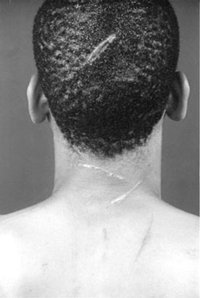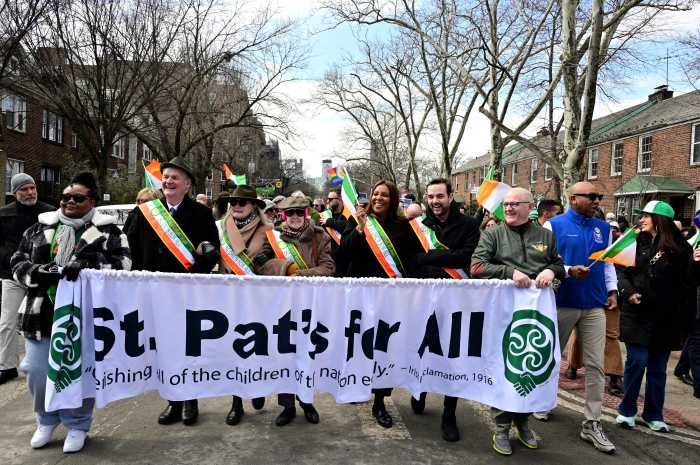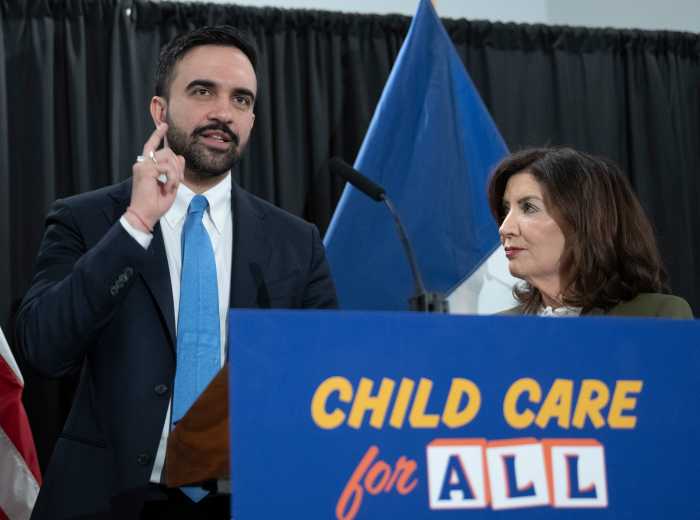Human Rights Watch moves critique of nation’s bigotry beyond just violent music
The heated debate over institutionalized homophobia on the island-nation of Jamaica took a decisive turn in mid-November with the release of a comprehensive report by Human Rights Watch (HRW), the U.S.-based non-profit organization, detailing extensive, state-sanctioned abuse in Jamaica of sexual minorities and people living with HIV/AIDS.
The report struck a chord with The New York Times, which published an editorial on December 2 stating that “Jamaica needs to work harder at improving its public health and AIDS awareness efforts.” The editorial claimed that the Caribbean region as a whole has the second-highest HIV infection rate in the world and that other countries in the arc are more vigorously addressing the problem.
The editorial echoed HRW in accusing the Jamaican government, police force and healthcare system of enabling the spread of AIDS by, respectively, refusing to repeal archaic sodomy laws, participating in anti-gay violence, and shunning AIDS patients in its care.
One of several testimonials in the HRW report reads, “Craig F., a health worker in northeast Jamaica, estimated that 90 percent of men who engage in homosexual conduct with whom he had worked had told him that they would not seek treatment for sexually transmitted diseases in the public health system because they feared that confidentiality was not maintained. Harold B., 34, told Human Rights Watch that health workers mistreated men who have sex with men: ‘When you go to a clinic and they know you are gay, they scorn you.’”
Jamaican officials in the United States immediately condemned The Times editorial. In a letter to The Times dated December 3, Gordon Shirley, Jamaican ambassador to the U.S., wrote that the editorial “relied heavily on the accusation of an activist group that insinuated an anti-gay bias within Jamaica’s medical system. We strongly take issue with this characterization.”
Aubrey Campbell, a spokesperson for the office of the Jamaican consul general in New York told Gay City News that the consul general, Dr. Basil Bryan, stood behind the letter and declined further comment on the issue.
The Human Rights Watch report is a significant expansion of an ongoing critique of homophobia in Jamaican culture. For years, gay and human rights advocates in Jamaica and around the world have protested the virulently homophobic content of some of the island’s most widely distributed pop music. In the last year alone, Jamaican recording artists Beenie Man and Sizzla, among others, came under fire internationally for their songs’ lyrics, which call for the slaughter of “battymen,” or gays.
On the international stage, the protests have typically focused on the music, stopping short of challenging government or legal policies in Jamaica that might account for such brazen articulations of anti-gay sentiment.
The scope of the HRW report goes beyond the music industry to consider the possible impact of government regulations, law enforcement practices and the workings of the healthcare system not only on the treatment of gay men and lesbians, but also on the nation’s capacity to contain the spread of AIDS.
The report specifically recommends that the Jamaican government repeal a set of 19th century statutes, originally instituted by British colonial administrators, “which criminalize sex between consenting adult men and are used as justification for harassment of men who have sex with men and of HIV/AIDS educators working with them.”
According to the 79-page report, entitled “Hated to Death: Homophobia, Violence and Jamaica’s HIV/AIDS Epidemic,” gay men, lesbians and people living with HIV/AIDS face violence that is often murderous from not only ordinary citizens, but also the police force. People perceived to be gay or lesbian, the report says, are regularly the targets of raids on homes and weapon-wielding ambushes.
Extensive testimonials contained within the report tell of this abuse, in addition to describing multiple instances in which health care workers neglect AIDS sufferers, even within hospitals.
One testimonial reads, “Albert B., 33, and his friends had been attacked by Kingston police a few days before Human Rights Watch met with him in June, 2004. The police beat Albert B. and his friends, threw stones at them, called them ‘battymen,’ ‘faggot,’ and ‘nasty men’ and drew their guns at them. The police actions drew the attention of other men, who came and beat them with boards, crying out ‘battymen.’”
The cover of the HRW report is a photograph of the back of a young man’s head with wide gashes on his head and neck from a machete attack.
“I can’t even get past the cover photo,” said Julius Powell, a staff member of New York AIDS Coalition, a statewide support agency, and a Jamaican national who has worked extensively in gay and AIDS support networks in Jamaica before emigrating to the U.S. “I’ve read testimonials like that before. It’s not that it’s particularly new. It’s just that no one [in Jamaica] is listening. You’ve had over 50 [anti-gay] murders, what more do you need?”
The HRW report contends that while the Jamaican government has undertaken campaigns to quell the spread of AIDS, its maintenance of centuries-old legislation and failure to address pervasive cultural attitudes which foster hostility towards gays and lesbians serve to undermine its best efforts.
“Until Jamaica addresses the epidemic of homophobic violence, it will have no hope against the epidemic of HIV/AIDS,” said Rebecca Schleifer, a researcher at HRW and a principal author of the report. “If the Jamaican government is serious about fighting the country’s AIDS epidemic, it should stop promoting brutality against gay men and lesbians and start protecting them from abuse.”
Jamaica is headed by Prime Minister P.J. Patterson, generally regarded as a center-left politician. Patterson himself has thus far remained silent about the report’s findings, while response from senior-level officials has been mixed. The Department of Heath initially expressed outrage, dismissing the report as “misleading, exaggerated and unacceptable.”
“Whereas advocating for human rights, legal and policy protection for persons affected by or at high risk of HIV/AIDS is a noble cause, providing misleading information and producing inflammatory sweeping statements undermines the efforts and progress made by the National HIV/AIDS Program and many of its local and international stakeholders,” said Dr. Yitades Gebre, executive director of the program in a letter addressed to HRW’s Schleifer, which was reported in the November 23 issue of the Jamaica Observer newspaper.
On December 1, however, the Associated Press reported that Jamaican Health Minister John Junor said his government is considering legislation that would protect HIV-positive people from discrimination at work and in other areas of public life.
“But you can’t just legislate to erase the stigma,” Junor told the AP. “You have to educate people.”



































